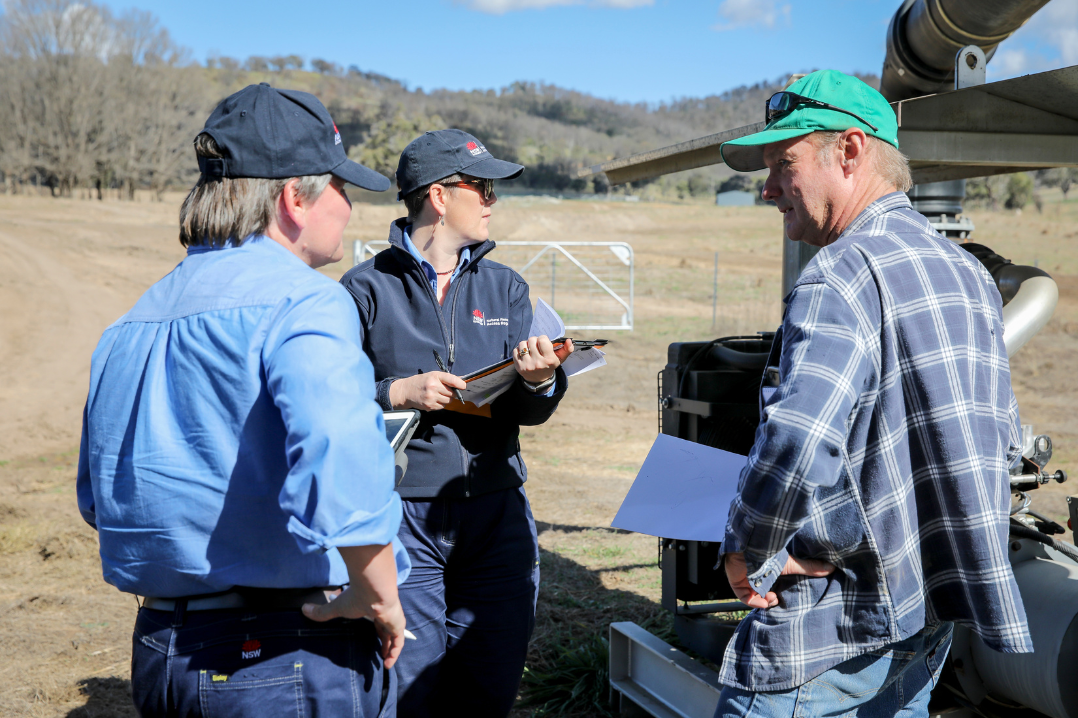NRAR campaign helps protect state’s at-risk underground water sources
Understanding of some of the state's most fragile underground water sources has been boosted thanks to the efforts of the Natural Resources Access Regulator (NRAR) and hundreds of NSW water licence holders.
Water users in four at-risk groundwater sources have been the focus of an NRAR education campaign leading to a significant increase in the number of monthly water meter self-reports to WaterNSW.
NRAR Manager Priority Programs, Grant Astill said this data was fundamental to setting sustainable water allocations for groundwater sources at high risk of over-extraction.
"We are really encouraged by the improvement we've seen so far," Mr Astill said.
"In the first six months of the 2022-23 water year, just 96 monthly reports were lodged. In the same period in 2023-24, the number had risen to 442."
“There is still a long way to go before self-reporting compliance is widespread, but we are on the right track,” he said.
Mr Astill said groundwater scientists used this data to set available water determinations for groundwater sources on July 1 each year, and from that, how much water individual licence holders can take.
"The more data they have, the more accurately they can model the aquifer to predict sustainable access and that's a win for the businesses, communities and ecosystems that depend on that groundwater to survive.”
Mr Astill said that if water users had not yet installed a compliant meter with telemetry as required under non-urban metering reforms, they needed to manually collect and submit water usage for each bore each month.
"Collecting and providing this data was always a water licence condition, but NRAR's auditing processes uncovered very low levels of compliance - often because people just didn't know the rules," he said.
"We’ve worked with hundreds of licence holders, face to face, by phone and by mail to help them understand their obligations and commit to regularly submitting their data," he said.
The groundwater sources targeted by the program were:
- Eastern Recharge (around North Star and Croppa Creek)
- Lower Gwydir (between Moree and Ashley)
- Lower Namoi (between Narrabri and Burren Junction)
- Upper Macquarie Alluvial (between Narromine and Wellington).
Mr Astill said NRAR would expand the education program to include licence holders in a further three at-risk underground water sources:
- Lower Murrumbidgee Deep Groundwater (between Narrandera and Balranald)
- Lower Lachlan Groundwater (between Lake Cargelligo and Oxley)
- Upper Murray Groundwater (between Albury and Corowa).
"This program has highlighted how important good data is to effective water management in NSW, but also that most water users are willing to comply if they have the right information," Mr Astill said.
"It's also underlined how important it is to install the telemetry required under non-urban metering reforms as soon as possible so that data can be automatically transmitted.”
For more information, visit our reporting monthly meter reads webpage
